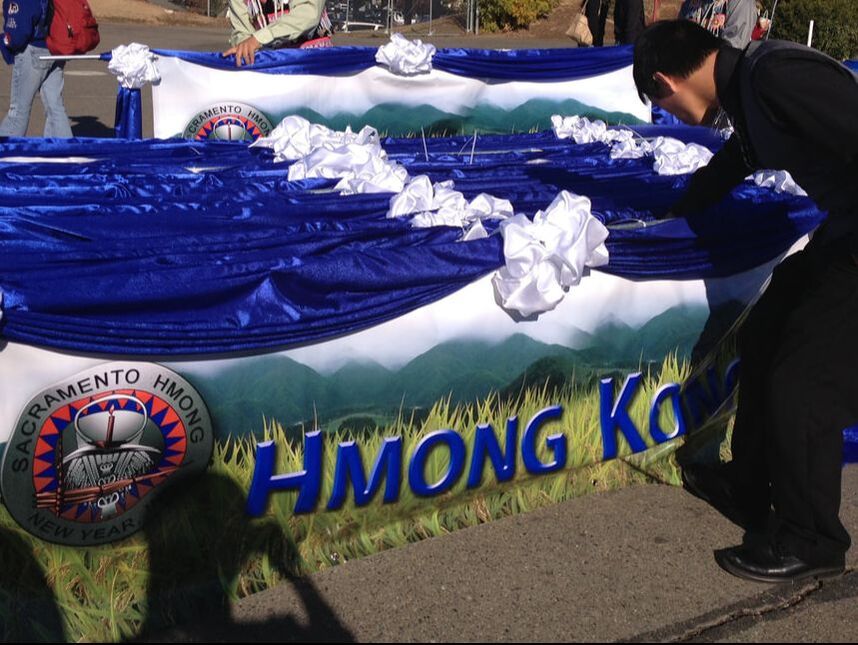|
|
|
By studying a Hmong community located in a rural village in Laos and their transnational families and relatives residing in California, I have learned that the surname-based, clan kinship system is not only critical for them to maintain their cross-border economic relationships and promote cultural traditions, but it has become hegemonic despite the salient generational and national differences between the two countries. For example, Hmong's clan identification has been the basis for the remarkable hospitality Hmong extend towards strangers and unexpected guests who are members of the same clan.
Many Hmong jokingly told me that I am technically 'Korean Hmong', because the English pronunciation of my Korean surname sounds identical to one of their eighteen clans. I came to wonder what makes Hmong clan kinship, based on a surname system, so dominant and inclusive that it allows Hmong to consider complete 'strangers' as family members and kin. Moreover, the strong emphasis on clan-based kinship causes Hmong to strictly adhere to the principle of clan exogamy (members of the same clan cannot marry or even become romantically engaged) and ethnic endogamy.
0 Comments
'There are no Asians in Asia, only people with national identities, such as Chinese, Japanese, Korean, Indian, Vietnamese and Filipino. But on this side of the Pacific, there are Asian Americans', wrote the historian Ronald Takaki. This quote juxtaposes the diversity and heterogeneity of individuals in Asia with the American reality of their pan-ethnic conflation.
In my recently published Identities article, 'There are no Asians in China: the racialization of Chinese international students in the United States', I explore this idea empirically with a longitudinal study of Chinese international students and their racialisation in the United States. I argue that it is through a process of racialisation – a process that involves learning about the concept of 'race' and one’s own social categorisation under such a paradigm – that those arriving from a country like China or Japan could eventually come to identify as 'Asian' or 'Asian American'. My study draws on two-stage interviews with 15 Chinese international students. The first interviews were conducted within two weeks of their arrival in the United States. I did so in order to capture the Chinese students’ initial understandings of race and their racial identities, before much acculturation processes could take place. I found, not surprisingly, that most Chinese students at this stage identified strongly with their national identity as Chinese and dismissed the category 'Asian' as a label of little significance to them.
Social categories establish group boundaries, and also may become obstacles to social interaction and contact between groups. In intimate relationships such as marriage and family, taboos may arise upon historically and socially constituted categories.
Intermarriage confronts these taboos: how individuals transcend social boundaries and create another 'us' through their strong relationships and strategies to deal with social oppression and prejudice. Intermarriage also has the potential to enhance social contacts between different groups, to solve group discontents, to question identity, group boundaries, prejudices and stereotypes, and to lead to more integrated societies. In the Turkish context, Alevi and Sunni intermarriages are a good example of how group boundaries can be blurred, and how categories intersect with different political standings and worldviews, gendered systems and subjective positions.
‘I hear people compare the immigration debate with the climate debate, and it does not fit quite well, because climate researchers are not faced with the same threats and the same hate as migration researchers, where the hate is very existential and often very personal’. This experienced migration researcher compares what researchers may experience in two fields of polarised social debate.
Climate change and migration are among the most polarised fields of public opinion and political mobilising; however, both fields depend on scientific knowledge for argument. Political adversaries refer to opposite research results as the 'truth' of the matter, and describe the same research results as either politically skewed or totally objective. Interviews with different generations of migration researchers in Norway about their research communication show that they often are interpreted as 'being political' when disseminating their results to the media or taking part in public debates: |
|
Explore Identities at tandfonline.com/GIDE |
|
The views and opinions expressed on The Identities Blog are solely those of the original blog post authors, and not of the journal, Taylor & Francis Group or the University of Glasgow.




